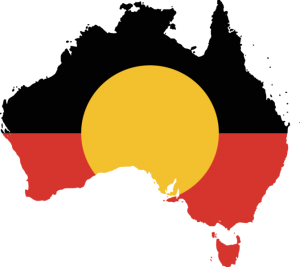papa tony’s choices: on abbott’s paternalistic approach to indigenous women’s welfare

Image: Wikimedia commons
If you heard out-and-proud ‘feminist’ Tony Abbott’s speech this International Women’s Day, you would think that – bar room for improvement in parental leave – ladies across the nation should be cheering. ‘Anyone who is an Australian has won the lottery of life and if you look at our country and the deal that it gives to women, it is obviously pretty good,’ Tone doth decree.
But these sentiments are not reflective of the life choices and options available to all Australian women. This is particularly the case as we struggle to close the gaps between non-Indigenous privileges and our First Nation women’s struggle to overcome centuries of problems caused by the legacy of dispossession and subsequent racism in our society’s structures.
Aboriginal women are, in some areas of Australia, up to 80 times more likely to be hospitalised for assault than the non-Indigenous. They were described as the nation’s fastest growing demographic behind bars by the Human Rights Commission in 2008. Just over 16 per cent of Aboriginal women are unemployed, compared with 5.5 per cent of the rest of the female population, though this rate is much improved where an Aboriginal person has had tertiary education. Indigenous children are more likely to be removed from their mothers in what has been described as the persistence of the Stolen Generations, with TIME reporting social workers in New South Wales are less picky about what constitutes neglect by Aboriginal families.
March 20 is Close the Gap day, which works towards combating the disparities in health outcomes Indigenous Australians face throughout their life time. The life expectancy of an Indigenous woman is 9.5 years shorter than other Australian women and data shows the health risks associated with the broader Aboriginal population are higher than other ethnic groups. It’s conceivable the small number of Aboriginal doctors and services in the health sector contributes to this.
Mental health services are a particular issue in the Indigenous community which have gained momentum over the past week, with Tony Abbott poised to intervene in the case of Northern Territory woman Roseanne Fulton. Fulton has been incarcerated for 18 months, despite being unconvicted and unable to stand trial for driving offences due to her cognitive impairment from foetal alcohol syndrome.
‘I personally asked for a briefing [on Fulton’s situation] because I have often remarked that I not only want to be known as an infrastructure prime minister, but I also want to be prime minister for indigenous affairs and I do take these issues seriously,’ Abbott said while awaiting said briefing, not commenting on the issue to properly compose his thoughts.
However, last August, Abbott revealed a view of women in Indigenous communities which has been described as consistent with a paternalistic view of our first people.
‘Women cowering in their houses, or in their huts, in fear of what some drunken relative might do,’ he described in a speech announcing Liberal policy for Indigenous Australians.
Abbott’s self-appointment as Minister for Women and his nearly lady-less cabinet is mirrored in a lack of women on his advisory board for Indigenous policy. Indeed, despite Abbott’s statement last August, perusal of the Liberal policy for Aboriginal people does not mention a means to advance the status of their women once. It is nixed in favour of economic and educational policy and getting Aboriginal people to observe ‘the ordinary law of the land’.
It would be wishful thinking to anticipate that this policy will lead to ‘empowered individuals’ without proper consultation and representation of some of these individuals – i.e. women. It’s no wonder, among other social issues, Indigenous rights were on the agenda at last weekend’s March in March protest held across the nation.
The lack of agency Abbott affords to Aboriginal women is akin to the wider structures he fails to change to benefit women.
‘My job as Prime Minister is to ensure that the women of Australia are free to have the life they choose to live,’ Abbott has said.
That is, within the choices Papa Tony* gives all of us.
*Definitely not a term of endearment.

